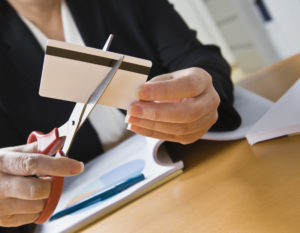Chapter 13 Bankruptcy
Chapter 13 bankruptcy is a “reorganization bankruptcy” like a corporate Chapter 11, but for individuals. A business owner may file Chapter 13 as an individual only; in a case such as this, business debts that the filer is personally liable for may be included. Filing might be the right thing for your specific situation and getting solid advice is essential. Seriously consider consulting an attorney if you are contemplating a bankruptcy filing.

A Chapter 13 bankruptcy allows you to reorganize your debt and consolidate it into one payment to a trustee who will distribute various amounts to creditors. Several requirements must be met in order to qualify:
- Sufficient ongoing wages or other household income must be available to pay all or most of the debt over a 3-5 year period. The timespan depends on the amount of debt and the income available.
- Amount of debt must remain under established limits. Currently (until April 2016) the limits are $383,175 for unsecured debt like credit cards or utility payments and $1,149,525 for secured debt such as mortgages.
- Tax returns must have been filed for the four years prior to the bankruptcy claim. The court may delay proceedings in order for you to get up-to-date, but eventually all the proper returns must be submitted.
Chapter 13 bankruptcy has some notable advantages:
- During the proceedings, creditors are prohibited from contacting you or attempting to collect a debt. For debtors who have been struggling, the relief from the emotional toll of debt collectors calling is a big benefit. Even after the plan has been accepted, you have no contact with creditors because the payments are handled by a trustee.
- Chapter 13 bankruptcy will allow you to keep your home. With the proceedings, you are able to halt foreclosure. The mortgage company must allow for the account to be caught up over time; as long as payments continue to be made, you will get back on course.
- Other secured debt may be consolidated, resulting in lower payment amounts. With lower payments each month, you will have the chance to catch up during the 3-5 year period. You will no longer be overwhelmed by debt.
Chapter 13 bankruptcy has advantages that can make it the right move for you. Debtors must submit all disposable income (what is left over after essential expenses are met) to the trustee to pay creditors. This is a key area where an experienced bankruptcy attorney will help you.
After filing, the debtor and his attorney will develop a plan to pay creditors; this must later be approved by the court. The amount that has to be paid back is determined by the amount of the filer’s debt and the filer’s disposable income.
The Bankruptcy Code requires that you give all of your disposable income to the trustee for at least the first 3 years of the plan. The amount of income that is considered “disposable” is determined in one of two ways. If your income is below the state median, actual reasonable expenses are used as “necessary.” If your income is above the state median, the “necessary” expenses are defined by the IRS Collection Financial Standards and the payment period will be 5 years.
The best interest test considers what is in the best interests of the creditors; they must be repaid at least as much as they would have if the debtor had filed Chapter 7 bankruptcy.
Deciding to declare bankruptcy is stressful. You need sound advice so that you can avoid actions that could jeopardize your case. A bankruptcy attorney can steer you through all of the steps and decisions that you encounter. If you are considering filing for Chapter 13 bankruptcy and want to make the process as pain-free as possible, consult a bankruptcy attorney in Philadelphia like William D. Schroeder, Jr. For more information or to set up a consultation contact us today.
